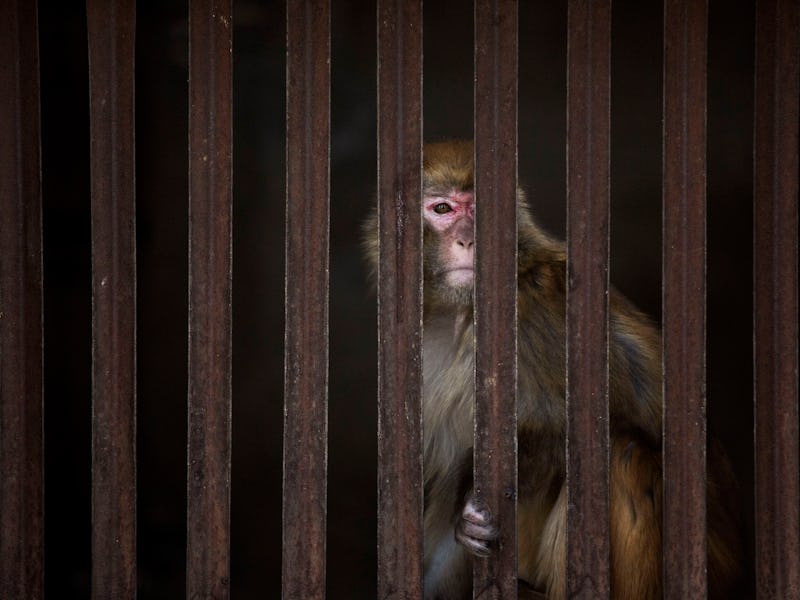Scientists Fight for Their Right to Import Research Monkeys
An Australian Senator proposed the ban, which medical researchers say is a terrible idea.

Days before the window for public comment closed, Australian medical researchers realized they had almost missed a piece of legislature that would have totally altered their careers: a proposed ban on the importation of non-human primates for medical research.
While three breeding colonies, which consist of several hundred research primates, exist in Australia, researchers argue that imports are a necessary component for maintaining genetic diversity. Senator Lee Rhiannon, however, believes that live primates are being “caught in the wild and sold to a booming research market.”
The use of primates caught in the wild in medical research is already banned by Australian regulations, but after an investigative piece by the Sydney Morning Herald exposed a system largely devoid of accountability, people got suspicious. The newspaper claims that millions of dollars of research grants are going towards primate experiments, the details of which are purposefully being hidden from the public. In response to the Herald, a University of Sydney spokesman said, “All researchers would prefer not to use animals in their research. However, in their quest to cure blindness, diabetes, cancer, epilepsy, and many other illnesses, animal research is currently the best hope for finding a cure.”
This is the same argument offered by neurologists like Nicholas Price, who opposes Rhiannon’s ban. Price and his colleague James Bourne were the catalysts that sparked the opposition to the proposed bill, engaging in a letter writing campaign that rallied the support of institutions like the Federation of European Scientists, the Society for Neuroscience, and the Australian National Health and Medical Research Council. To these organizations, a ban on primate imports threatens the very stability of Australian science.
Between 2000 and 2009, Australia imported 250 long-tailed macaques.
“This constraint would have disastrous consequences for Australia’s ability to conduct biomedical research critical for health advances,” wrote the Society for Neuroscience in an opposition statement. “The bill under consideration jeopardizes the genetic diversity of the existing Australian research colonies and future availability to import unique models from other laboratories in the world, including transgenic animal for disorders such as autism.”
This is not Rhiannon’s first time proposing the ban, which is intended as an amendment to the federal Environment Protection and Biodiversity Conservation Act. Her goal is to pass the legislation before the January 2017 federal election and Parliament is dissolved, effectively killing all proposed bills.
The uncomfortable reality of current medical research is that imported primates are essential for medical research. Pulling from only current colonies greatly increases the chances for inbreeding, diseases, and a loss of fertility. While many researchers lament the need for animal models, institutions like the American Academy of Neuroscience continue to see the use of animals as a “matter of common sense.”
All that said, things change.
There are emerging technologies — notably mini-brains — that might make monkeys’ bodies obsolete. The use of stem-cell technology as a replacement to animal testing has been promised for some time, but John Hopkins Bloomberg School of Health recently premiered the first standardized mini-brains that can be used to study neurological diseases and test new drugs.